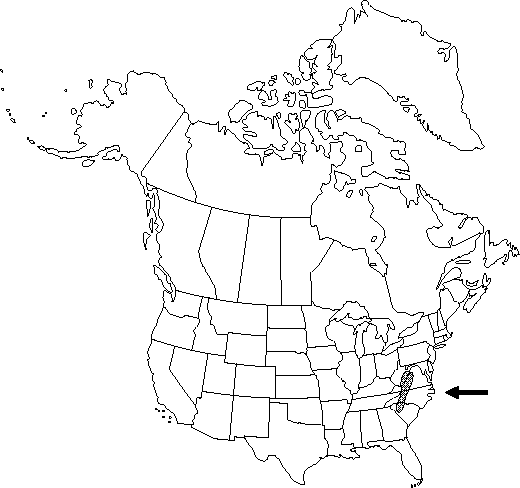Anemone lancifolia
Fl. Amer. Sept. 2: 386. 1814.
Aerial shoots 10-40 cm, from rhizomes, rhizomes horizontal. Basal leaves 1, ternate; petiole 10-25 cm; terminal leaflet sessile, oblanceolate to ovate, (3.5-)4-7(-8) × 2.5-4(-6) cm, base broadly cuneate, margins coarsely serrate on distal 1/2-2/3, apex acuminate, surfaces ±glabrous; lateral leaflets unlobed or occasionally 1×-lobed; ultimate lobes 8-25 mm wide. Inflorescences 1-flowered; peduncle ±glabrous; involucral bracts 3, 1-tiered, ternate, ±similar to basal leaves, bases distinct; terminal leaflet sessile, oblanceolate to ovate, (2-)3-8.7 × 0.8-3 cm, bases narrowly cuneate to cuneate, margins coarsely serrate on distal 1/2 -2/3, apex acuminate, surfaces ± glabrous; lateral leaflets unlobed or occasionally 1×-lobed; ultimate lobes 15-30 mm wide. Flowers: sepals (4-)5(-7), white, oblong to elliptic, (13-)15-20(-25) × 5-10 mm, glabrous; stamens 50-70. Heads of achenes nearly spheric; pedicel (3-)4-8(-10) cm. Achenes: body elliptic, flat, 3.5-5 × 1-1.5 mm, not winged, puberulous; beak straight or slightly curved, 1-1.5 mm, ±glabrous, not plumose.
Phenology: Flowering spring–summer (Apr–Jun).
Habitat: Damp, rich woods
Elevation: 800-1500 m
Distribution

N.C., S.C., Va., W.Va.
Discussion
Selected References
None.